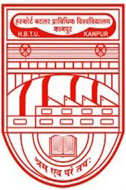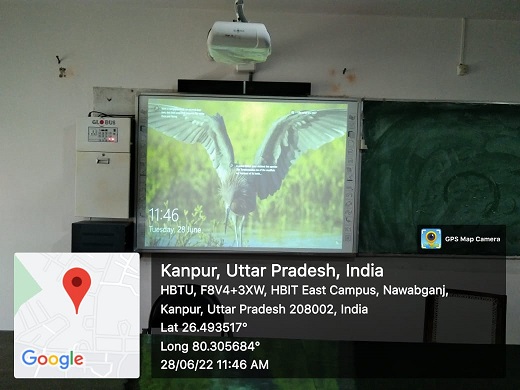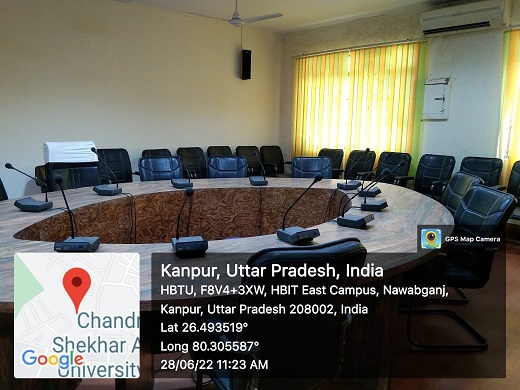Department Profile
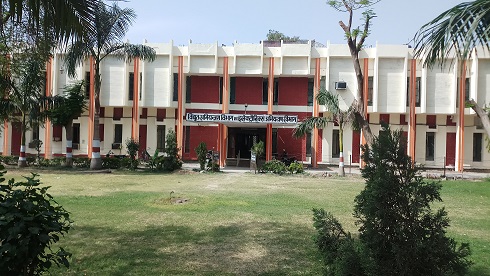
The Department of Electrical Engineering was established in the year 1965. It is one of the oldest and premier engineering department of the university. The number of the students having completed their under graduate programme has reached the 1500 figure mark. The department has been playing a vital role in producing scientists and engineers of highest possible calibre ever since its inception. Apart from offering a bachelors degree programme in electrical engineering, the department also offers part time master degree programme in power electronics and control discipline and part time and regular doctor of philosophy programmes. The department has an annual intake of 33 students in the under graduate B.Tech. Programme. and 10 in Post Graduate M.Tech. Degree Programme and around 5 in PhD programme. The department has been playing a pioneer role in producing world-class engineers and research scholars.
The department has rich and experienced faculty members with very wide exposure.The department has distinguished faculty, all holding degrees from renowned institutes / universities. The faculty member(s) of this department has / have applied for patents, authored good number of books and guided good number of M. Tech. theses, Ph.D. theses. The commitment and dedication, punctuality, experience, expertise and enriched knowledge of the faculty members are few among many the distinguishing features of this department.
The passed out students have proved their mettle in various private and government organisations, public sector organisations, civil services, teaching & research, research & development and multi-national companies. Electrical Engineers rolling out of the institute are well groomed in the core areas of Advanced Control Systems / Power Electronics / Electrical Machines / Power Systems / Measurement and Instrumentation / Machine Design / Power Generation, Transmission & Distribution as well as Software Development/Handling and R&D work. The continuous updations in the course curriculum polishes the budding electrical engineers, in a way, so as to meet the challenges posed by newer technologies and reach the ever-expanding horizons and evolving challenges of industry.
The infrastructure and laboratory facilities are being upgraded from time to time so as to provide adequate opportunities to students and researchers to learn and carry out technological innovations. Financial support for this purpose if provided by the university and TEQIP World Bank. The department has Library, Basic Electrical Engineering Laboratory, Electrical Machines Laboratory, Power Electronics& Electric Drive Laboratory, Microprocessor & Control Laboratory, Power System Laboratory, Network Laboratory, Electrical Fabrication Laboratory, Simulation Laboratory, RTPESS Lab., Electrical Measurement Laboratory, Electrical Science Laboratory and Instrumentation Laboratory. The department has facilities to support teaching and learning activity The department had planned to add advanced laboratories in the areas of advanced control, machine intelligence and also personality development.
The department is continuously engaged in research and development activities. Several National and State level seminars, Technical Festivals, Faculty Development Programmes, Conferences, Symposiums, Expert Lectures, Workshops, Staff Training Programmes, Short Term Courses etc. are part of its yearly agenda. The department is applying for accreditation by National Board of Accreditation, (NBA). The department also undertakes many research projects sponsored by both the government, industry, civil societies etc..
Vision
Building department into a knowledge hub, through its utmost focus on relevant education, innovation and cutting edge research, and out-reach activities for the conservation, peace, happiness, well-being and prosperity of all creation.
Mission
- To educate and train the students equipped with knowledge of electrical engineering, analytical abilities, ethics and integrity human and social values and leadership qualities
- Capacity building, innovation and development of research capabilities through collaboration / agreements and symbiotic relationship with industry / institutes / universities and other government / private / non-government agencies and civil societies.
- Providing environment friendly, reasonable and sustainable solutions for local & global needs.
- Creating awareness and also enhancing resource generation through STCs, FDPs, SDPs, etc.
- Implementation of quality processes in teaching and learning, and research.
- Foster an ecosystem as per the need of the time well-knitted with the nature, and establishing Centre(s) of Excellence / state of art lab facilities in niche areas as per strengths of department
- Establishing the department as the leader and hand holding others institutions / universities
Program Educational Objectives (PEOs)
PEO 1. Ability to exhibit memory of previously learned material by recalling fundamental facts, terms, basic concepts and answers about the selection, in the domain of electrical engineering.
PEO 2. Ability to demonstrate understanding of facts and ideas by organizing, comparing, translating, interpreting, giving descriptors and stating main ideas, in the domain of electrical engineering.
PEO 3. Ability to solve problems in new situations by applying acquired knowledge,facts, techniques and rules in a different, or new way, in the domain of electrical engineering.
PEO 4. Ability to examine and break information into parts by identifying motives or causes. Make inferences and find evidence to support generalizations, in the domain of electrical engineering.
PEO 5. Ability to compile information together in a different way by combining elements in a new pattern or proposing alternative solutions , in the domain of electrical engineering.
PEO 6. Present and defend opinions by making judgments about information, validity of ideas or quality of work based on a set of criteria, in the domain of electrical engineering.
Program Specific Outcome (PSOs)
Departmental Activity
Programmes
Under Graduate
B. Tech. Electrical Engineering
Post Graduate
- M.Tech.(Power Electronics & Control)
PhD
Syllabus
Under Graduate
PhD
Course structure for PhD program in different specializations.
PhD courses should be taken by students in consultation with their thesis supervisors.


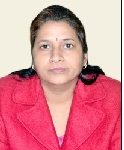

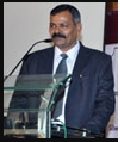
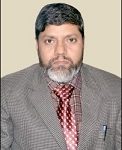
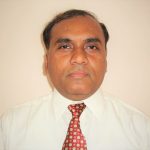








Laboratories
Research/ Project/ Consultancy
Publications
The faculty members are actively involved in research activities and publishing the research work in reputed journals. The details of the publications are provided in the bio-data of individual faculty members.
Prof. Yaduvir Singh
Prof. Sanjiv Kumar
Prof. C N Singh
Mr. J K Dwivedi
Mr. Jameel Ahamad
Dr. C B VishwakarmaGoogle Scholar || Scopus ID
Dr. Afroz Alam Google Scholar || Scopus ID
Dr. Shailendra Kumar Bhaskar
Dr. Chhavi Lal
Dr. Rohit Kumar Verma
Mr. Govind Kant Mishra
View List of Publications of EED
